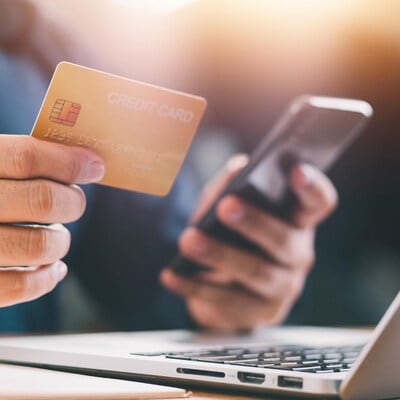Credit Card, Shopping(Photo: Shutterstock)
Credit cards are easy to get and so people subscribe to many. What should they do with credit cards you no longer use?
“A number of credit cards tend to charge an annual maintenance fee below a certain spend so it is important for customers to understand the terms and conditions. On similar lines, value added services like lounge access etc are often free only with a minimum spend every month,” said Prashant Kumar, founder and chief executive officer (CEO) of Kredit.Pe.
What should you do?
Evaluate which cards offer the best rewards, lowest fees and relevant benefits. For cards you decide to keep, make small and regular purchases to keep them active. This can be as simple as setting up a recurring bill payment.
If you’re considering cancelling a card due to high fees, call the issuer first. Many banks are willing to waive fees or offer better terms to retain customers.
If you decide to close a card, be mindful of the potential impact on your credit score. Consider keeping your oldest card to maintain a longer credit history.
For cards you keep but do not regularly use, ensure they are stored securely.
Set up alerts and check statements for all your cards, even those you don’t use frequently.
If you have high-interest debt on one card, consider transferring it to an unused card with a lower rate.
Akshay Aedula, product and growth at CRED, explains how to manage unused credit cards:
Optimise your card selection: If you have unused credit cards, consider migrating to another option within the same bank that better aligns with your spending habits. This allows you to take advantage of your card’s benefits without applying afresh, which can be cumbersome and could impact your credit score. Migrating to a different card from the same card is also usually faster and more seamless.
Manage unused cards wisely: For cards, you don’t use regularly but may need occasionally, manage card controls and keep them switched off until you need it. Activate only when necessary to prevent unintended transactions, ensuring your available credit remains secure and under your control.
Keep old cards active: It is beneficial to keep your older credit cards active, as a longer credit history improves your credit score. A strong credit history not only reflects responsible credit management but also results in better rates and faster approvals when applying for new credit lines or loans.
Leverage unused cards for liquidity & offers: Unused credit cards can serve as a safety net during unexpected financial needs and allow you to capitalise on special offers that your bank may introduce from time to time. You should check rewards and offers across various banks, ensuring you maximise the benefits of your cards. However, remember to use them periodically to maintain a healthy credit score and avoid penalties for inactivity.
Monitor your credit activity: If your only active credit line is an unused card, it could adversely affect your credit score. Regular use demonstrates to lenders that you can manage credit effectively.
Maintain low utilisation: Aim to keep your credit utilisation low across all cards. Track your credit utilisation across all cards.
“The decision to cancel any unused credit card should be well researched according to the card’s utility, fees attached to it, and the financial aspirations of the user,” said Rohit Garg, CEO and co-founder of Olyv, (an app-based consumer lending platform).
First Published: Sep 26 2024 | 11:33 AM IST


